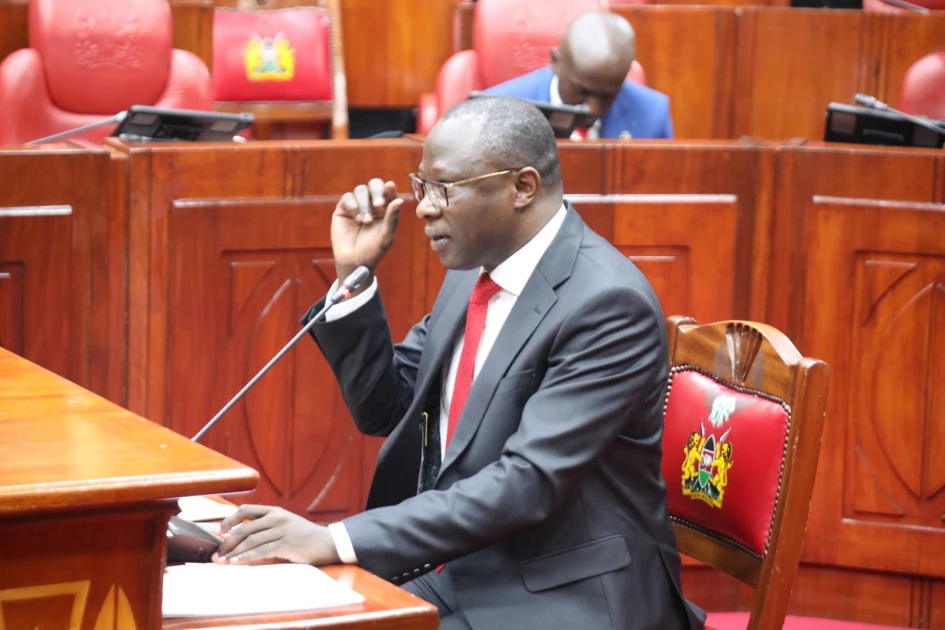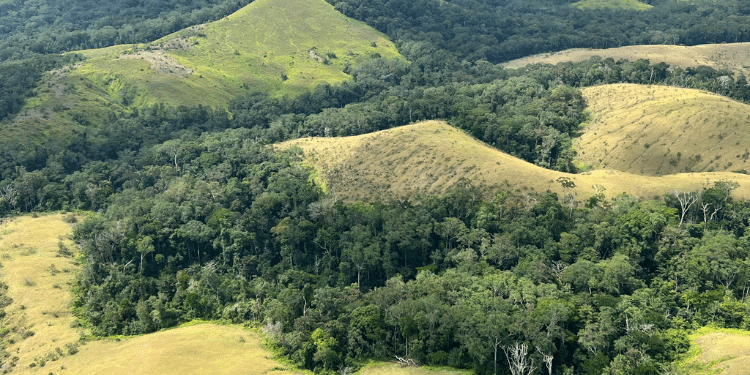United Nations Forum on Forests (UNFF19) has unveiled a report on the risks associated with increasingly valuing forests primarily as carbon sinks.
The report, titled “Report Exposes Risks of Valuing Forests as More Than Carbon Sinks,” challenges the prevailing notion that the primary function of forests’ lies in carbon sequestration, pointing out the diverse ecological and social roles they play.
Compiled by world-leading forest scientists at the International Union of Forest Research Organizations (IUFRO), the report distills over a decade of research, offering an assessment of global forest governance trends since 2010.
It warns against what it terms as the ‘climatization’ of forests, whereby forests are reduced to mere carbon sinks, neglecting their broader ecological and social significance.
One of the central findings of the report is the disproportionate focus on carbon sequestration, particularly evident in Africa, where forests are increasingly viewed as carbon sequestration sources.

Report Sheds Light on the Need for Policy Shift
The Congo Basin, recognized as the largest carbon sink globally, has become emblematic of this trend.
Market-driven approaches, such as the REDD+ mechanism, aimed at safeguarding carbon sequestration capacity, are proliferating in the region.
However, the report highlights the shortcomings of such market-based approaches in ensuring sustainable forest management.
Dr. Nelson Grima, Deputy Coordinator of IUFRO SciPol, points out the complexity of International Forest Governance (IFG), noting the crowded and fragmented landscape of actors and instruments.
He emphasizes the need to address power asymmetries to foster effective policy coordination.
“The current ‘playing field’ for international forest governance is more crowded and fragmented than ever before, with a plethora of new actors and instruments.
“The challenge now is to strengthen and coordinate forest policy to address power asymmetries between the different actors.” he said.
Market-based approaches, including forest carbon trading and zero deforestation supply chains, have gained traction in forest governance.
Risk of Increasing Inequalities in Forest Management
However, Prof. Constance McDermott from the University of Oxford, who is also the lead author of the report, warns that these approaches risk perpetuating inequalities and undermining sustainable forest management.
Instead, the report advocates for long-term, locally driven alternatives that prioritize social and ecological equity.
Prof. Franklin Obeng-Odoom from the University of Helsinki, another lead author of the report, stresses the importance of social inclusion and environmental justice.
Also Read: New Report Shows What Wealthy Kenyans Look for in Real Estate Investments
He calls on policymakers to protect the land rights of forest-dependent communities and support the transition towards a more just ecological future.
Despite progress in reducing global rates of tropical deforestation, the report cautions against measuring forest governance success solely based on deforestation rates.
Prof. Daniela Kleinschmit from Freiburg University emphasizes the need for a more holistic approach, considering the diverse needs and demands connected to forests globally.
Kenya Statistics on Carbon Markets
According to data from Climate Watch, an initiative managed by the World Resources Institute, Kenya emits approximately 70 million tonnes of CO2 annually.
Recently, the UN-endorsed African Carbon Market Initiative (ACMI), introduced during COP27 in November projected an increase in carbon credits generated on the continent by 2030, potentially reaching 300 million credits per year- a big leap from current levels.
For Kenya, this surge according to (ACMI) could translate into over 600,000 job opportunities and an annual revenue of $600 million.
Also Read: UN Takes Stance After Israel’s Decision to Shut Down Al Jazeera
However, these estimations rely on assumptions of a considerably higher carbon price than current market rates, alongside a substantial increase in financial investment.
This optimism contrasts with the prevailing volatility and trust issues plaguing the carbon market, raising doubts about its ability to deliver on such ambitious projections.
Leading up to the Africa Climate Summit in Nairobi, over 500 civil society organizations penned a letter to Deputy President Ruto, urging a shift away from carbon markets and what they deemed as “false solutions” influenced by Western interests.
The letter warned against the potential repercussions, arguing that these approaches could ultimately benefit wealthy nations and corporations while increasing environmental challenges for Africa.
Do you want to be part of an updated community without the interruptions of unwanted messages? Click the link below and join our WhatsApp Channel!
https://whatsapp.com/channel/0029VaB3k54HltYFiQ1f2i2C











































































